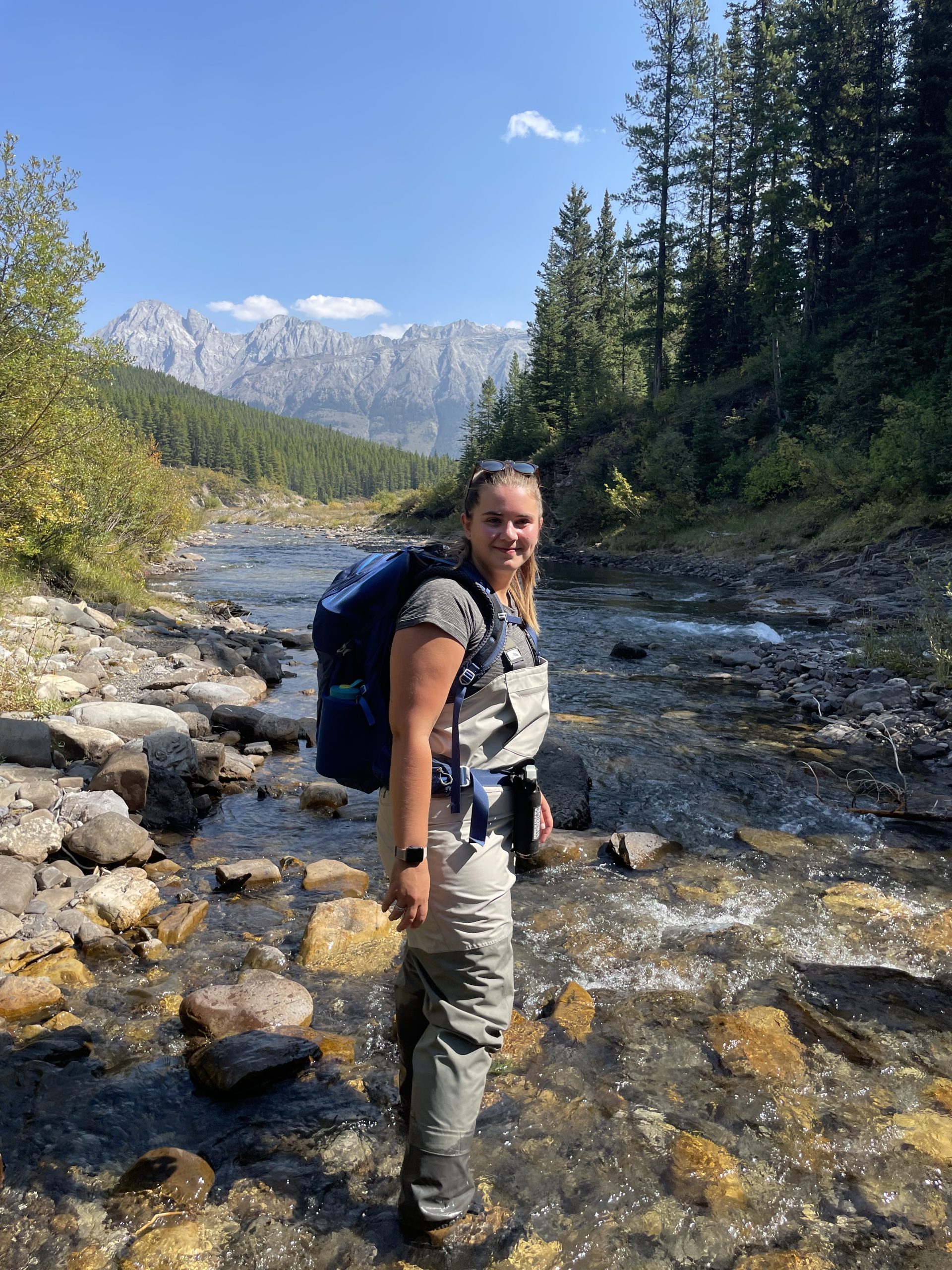
2023 Scholarship Recipient Tara Lepine
Aquatic sciences form the basis of the sound management of lakes and their watersheds. ALMS has created a scholarship to encourage and support students in disciplines related to lake or watershed management. Full time senior undergraduate or graduate students enrolled at Canadian universities or colleges are eligible to apply. The scholarship is intended to support students in the aquatic sciences, and related disciplines, and promote the objectives of the Alberta Lake Management Society (ALMS). The amount offered is $2000 Canadian.
A scholarship review committee appointed by the Board of Directors will review applications and award the scholarship. A combination of the following factors will be considered: academic achievement, major field of study, a statement of career goals, and relevance of the course of study to the objectives of ALMS.
The recipient will be expected to address the Annual General Meeting in the fall to present a progress report on research undertaken, or another topic of mutual interest. The scholarship funds may be spent at the discretion of the award recipient.
Application Guidelines
The application deadline for the 2024 Scholarship is July 31, 2024 at midnight.
Please view the Application Guidelines PDF for information on what to include in your submission. If you’d like to advertise this posting, feel free to use our Scholarship Poster. Applicants should be enrolled in their educational program in September of the scholarship year.
Please email your application directly to ALMS info@alms.ca.
If you have any challenges with your application, please call (780) 702-ALMS or email us at info@alms.ca.
Past Recipients
| Recipient | Year Awarded | Program Title |
| Tara Lepine | 2023 | An experimental test of the potential for Bull Trout conservation translocations, via instream incubation capsules, in Alberta. |
| Ceilidh Welch | 2022 | Assessing the Reliability of a Community-Based Approach to qPCR Water Monitoring. |
| Ferdous Nawar | 2021 | Implication of winter ice cover physical/optical properties on basal productivity and associated hydro-chemical gradients in seasonally ice-covered temperate lakes in Alberta. |
| Sydney Huculak | 2020 | Identifying the limiting nutrients driving stream eutrophication within Alberta’s agricultural watersheds. |
| Sebastian Theis | 2019 | Assessing Habitat Enhancements to Improve the Restoration and Development of Northern Boreal Lakes. |
| Sydney Rudko | 2018 | Development, Implementation, and Assessment of qPCR Field Diagnostic Methodologies within a Citizen Science Framework for Monitoring Biological Hazards in Recreational Water. |
| Kate Keenan | 2017 | Impacts of climate and environmental change on zooplankton community structures in Alberta’s Rocky Mountains. |
| Laura Redmond | 2016 | Assessment of climatic adaptation by alpine plankton. |
| Michelle Gordy | 2015 | Ecological modelling of snail and trematode communities to understand swimmer’s itch transmission in Alberta lakes. |
| Lisa Brodziak | 2014 | Water Quality Assessment and Management Options for Isle Lake and Lac Ste. Anne, Alberta. |
| Michelle Gordy | 2013 | Environmental factors and their effects on swimmer’s itch transmission dynamics in Alberta lakes. |
| Lauren Bortolotti | 2012 | Whole-ecosystem recovery of prairie pothole wetlands. |
| Megan MacLennan | 2011 | Interactions between multiple stressors in freshwater lake communities: Can fish predation negate climate warming effects? |
| Sarah Lord | 2010 | Patterns of mercury contamination in Common Loons and fishes near a local source of atmospheric mercury pollution. |
| Justin Hanisch | 2009 | Effects of stocked trout on the native food webs, forage fish and invertebrates of boreal foothills lakes. |
| Nathan Ballard | 2008 | Internal phosphorus generation from lake sediments in Alberta prairie lakes. |
| Vanessa Phillips | 2007 | High Mountain Lakes as Indicators for Global Change. |
| Heather Boyd | 2006 | Regime Shifts in Shallow Prairie Lakes. |
| Danielle Cobbaert | 2005 | Effects of phosphorus on submerged macrophytes and planktonic food webs in Boreal Lakes. |
| Steph Neufeld | 2004 | Land conversion and its effect on stream nutrients and macroinvertebrate diversity. |
| Fiona Johnson | 2003 | Sustainability of Bull Trout in Lower Kananaskis Lake. |


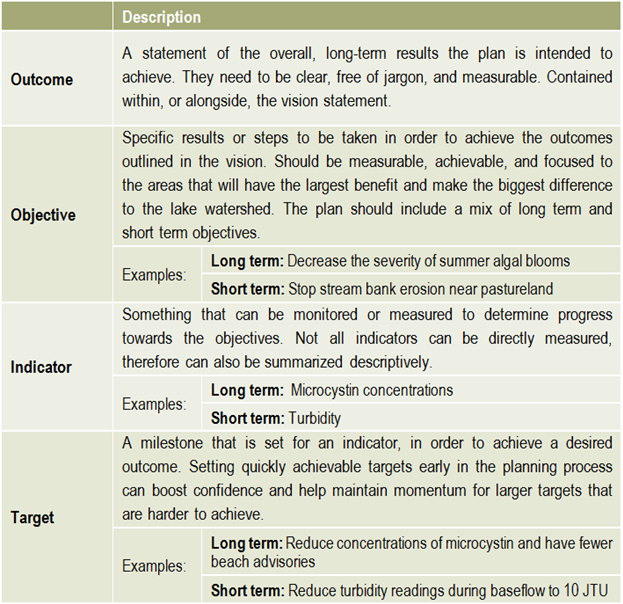
 The members of the steering committee will continue to play a strong role in facilitating and tracking implementation actions. This includes any actions they were responsible for, as well as tracking other committees and sector’s actions and progress made towards achieving the plan’s outcomes. Ongoing communication is essential to successful implementation and achieving outcomes, therefore a regular reporting mechanism could be set up in order to provide regular evaluation of the plan.
The members of the steering committee will continue to play a strong role in facilitating and tracking implementation actions. This includes any actions they were responsible for, as well as tracking other committees and sector’s actions and progress made towards achieving the plan’s outcomes. Ongoing communication is essential to successful implementation and achieving outcomes, therefore a regular reporting mechanism could be set up in order to provide regular evaluation of the plan.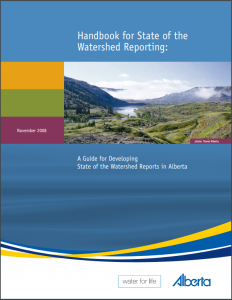
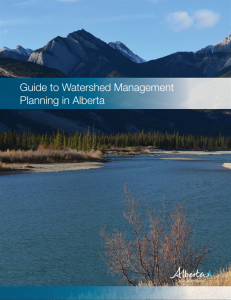
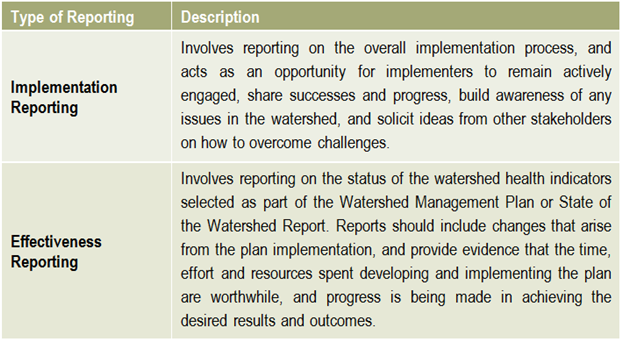 Reporting is an essential component of any watershed management planning and implementation process. There are two main types of reporting that should be shared with stakeholders on a regular basis: implementation reporting & effectiveness reporting.
Reporting is an essential component of any watershed management planning and implementation process. There are two main types of reporting that should be shared with stakeholders on a regular basis: implementation reporting & effectiveness reporting.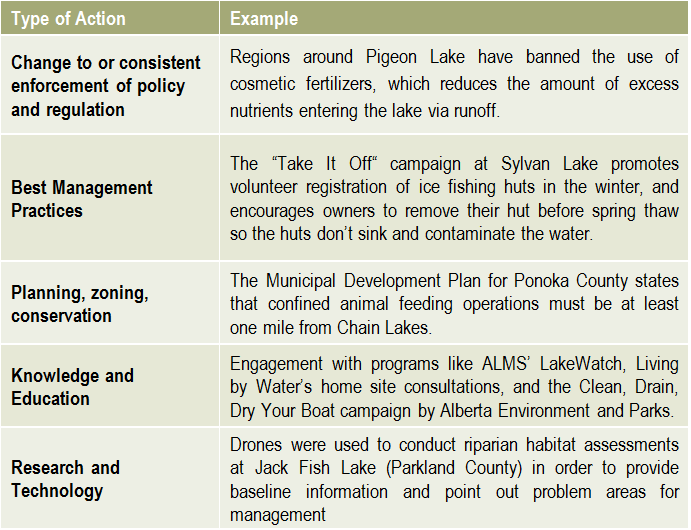 There is no limit to the number or types of lake management actions, but they typically fall into the categories on the right.
There is no limit to the number or types of lake management actions, but they typically fall into the categories on the right.
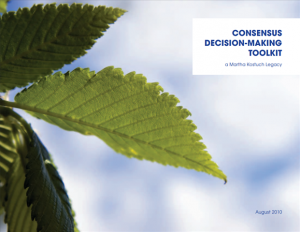
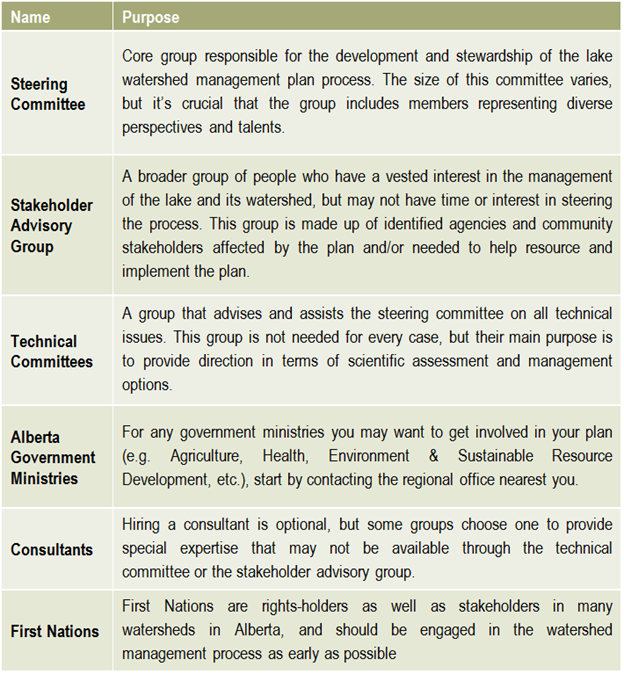 Helpful resources
Helpful resources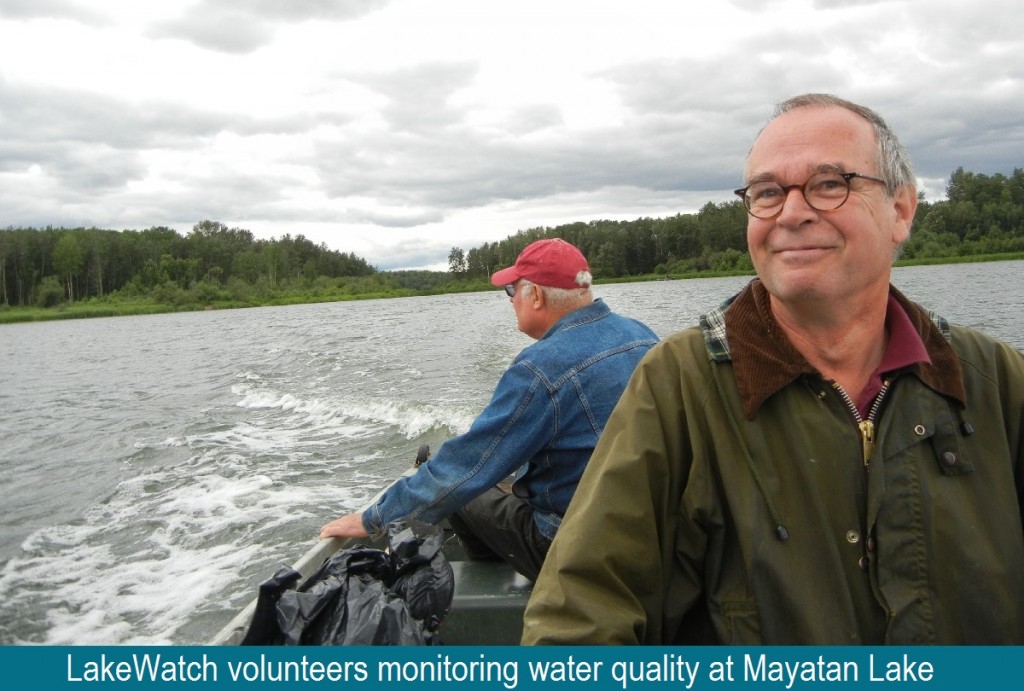 The development of a lake watershed management plan provides the guidance needed to implement activities, but the plan cannot be static. Monitoring the performance of your management actions is essential to understanding whether your goals have been met, and whether further actions are needed. Monitoring and evaluating the implementation and effectiveness of a lake watershed management plan allows assessment of progress towards the goals and objectives of the plan, identification of problems and opportunities, and a collection of critical information required when performing a 5 or 10 year review of the plan.
The development of a lake watershed management plan provides the guidance needed to implement activities, but the plan cannot be static. Monitoring the performance of your management actions is essential to understanding whether your goals have been met, and whether further actions are needed. Monitoring and evaluating the implementation and effectiveness of a lake watershed management plan allows assessment of progress towards the goals and objectives of the plan, identification of problems and opportunities, and a collection of critical information required when performing a 5 or 10 year review of the plan.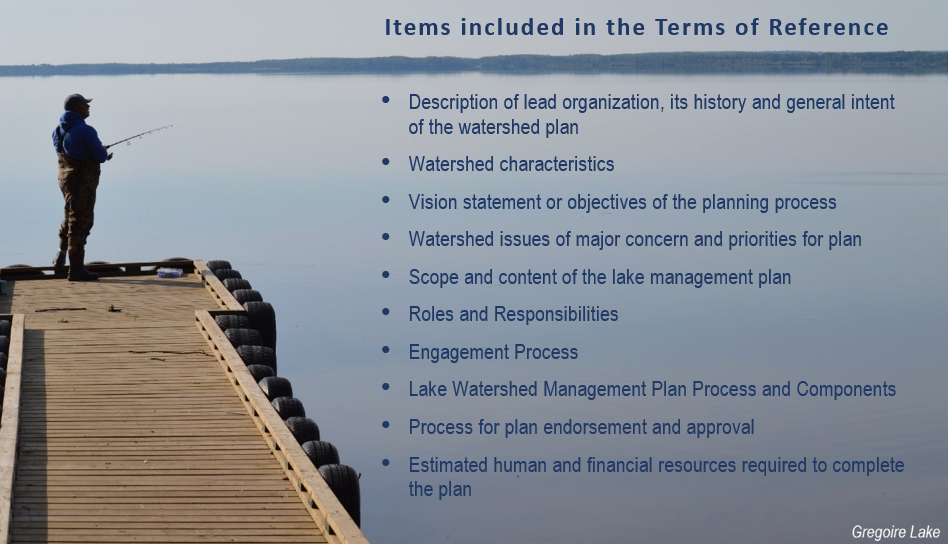
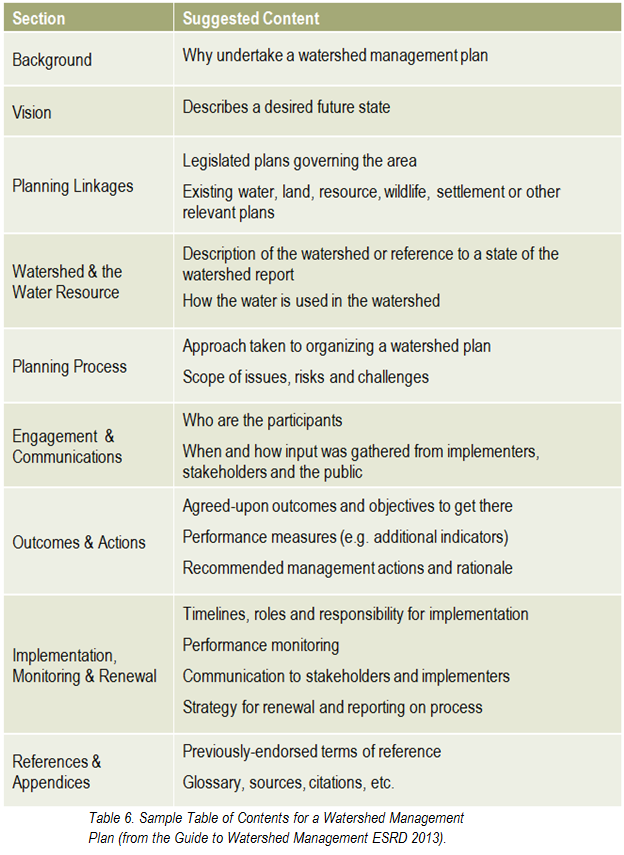
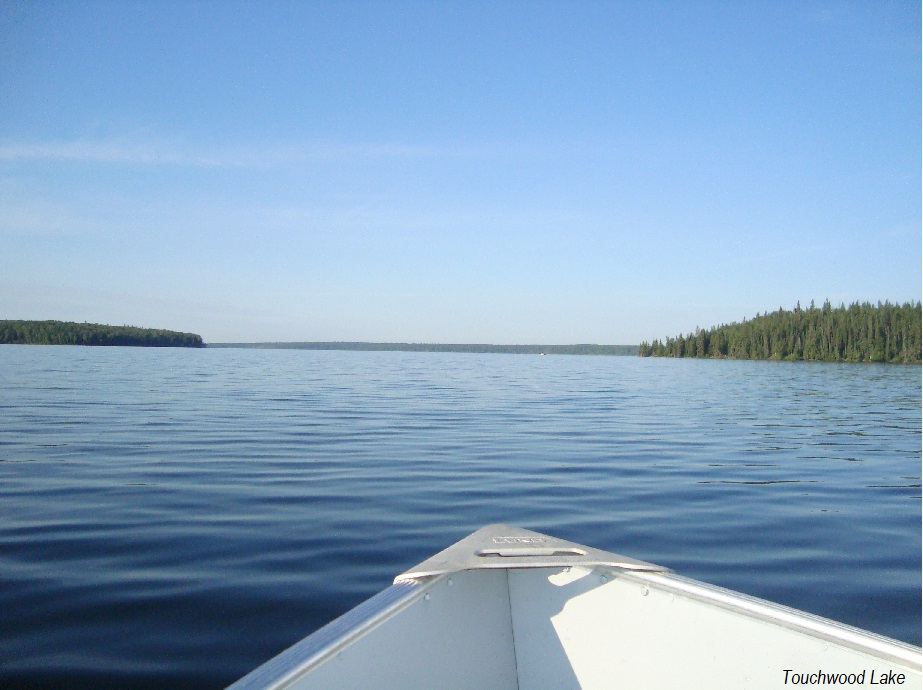 What has the monitoring results of the plan and of the indicators shown? Is there a need to modify the plan? It is important that the lake watershed management plan does not just sit on a shelf. Information gaps should be addressed, action items need to be managed, completed, and evaluated to best address the needs of the lake. Always keep in mind the vision: if the actions taken are not bringing the lake closer to that vision, then the plan needs to be modified. Consider updating both the state of the watershed and the lake watershed management plans at regular intervals to make sure that the actions taken were achieving the desired outcomes and to evaluate what work still needs to be done.
What has the monitoring results of the plan and of the indicators shown? Is there a need to modify the plan? It is important that the lake watershed management plan does not just sit on a shelf. Information gaps should be addressed, action items need to be managed, completed, and evaluated to best address the needs of the lake. Always keep in mind the vision: if the actions taken are not bringing the lake closer to that vision, then the plan needs to be modified. Consider updating both the state of the watershed and the lake watershed management plans at regular intervals to make sure that the actions taken were achieving the desired outcomes and to evaluate what work still needs to be done.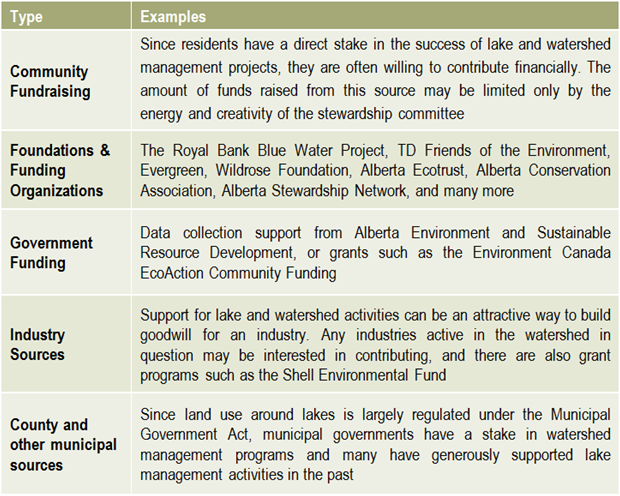 Once a plan has been approved by all affected sectors and officially endorsed and released by the steering committee, then implementation can begin in full. Action projects can be large and comprehensive, or made smaller by staging projects over time or into modules that can be tackled one at a time. Fundraising is an issue that many community groups may find intimidating, but experience with programs such as the Pine Lake Restoration Program (see
Once a plan has been approved by all affected sectors and officially endorsed and released by the steering committee, then implementation can begin in full. Action projects can be large and comprehensive, or made smaller by staging projects over time or into modules that can be tackled one at a time. Fundraising is an issue that many community groups may find intimidating, but experience with programs such as the Pine Lake Restoration Program (see 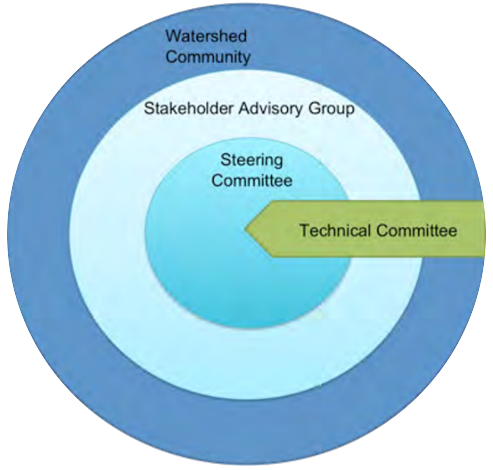 This graphic describes how the various committees and groups will work and interact together. The circle size depicts the approximate number of people involved, and the circles overlapping indicates that some individuals may reside in all of the circles and participate in multiple committees as part of the planning process. The technical committee is shown as an arrow, indicating that it is independent and has relatively few people, and yet it interacts with all of the groups. This graphic may look different depending on the lake and the people involved, and a detailed structure should be agreed upon and described in the plan’s Terms of Reference (Step 6).
This graphic describes how the various committees and groups will work and interact together. The circle size depicts the approximate number of people involved, and the circles overlapping indicates that some individuals may reside in all of the circles and participate in multiple committees as part of the planning process. The technical committee is shown as an arrow, indicating that it is independent and has relatively few people, and yet it interacts with all of the groups. This graphic may look different depending on the lake and the people involved, and a detailed structure should be agreed upon and described in the plan’s Terms of Reference (Step 6).